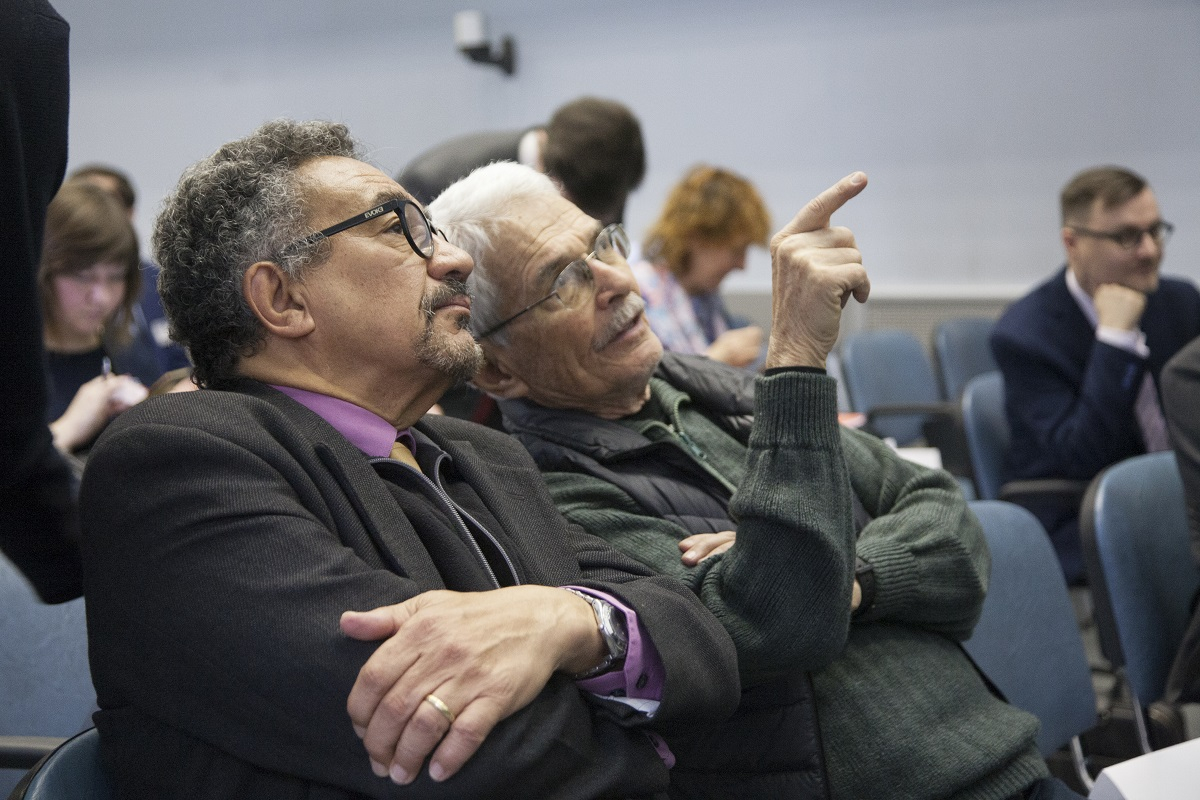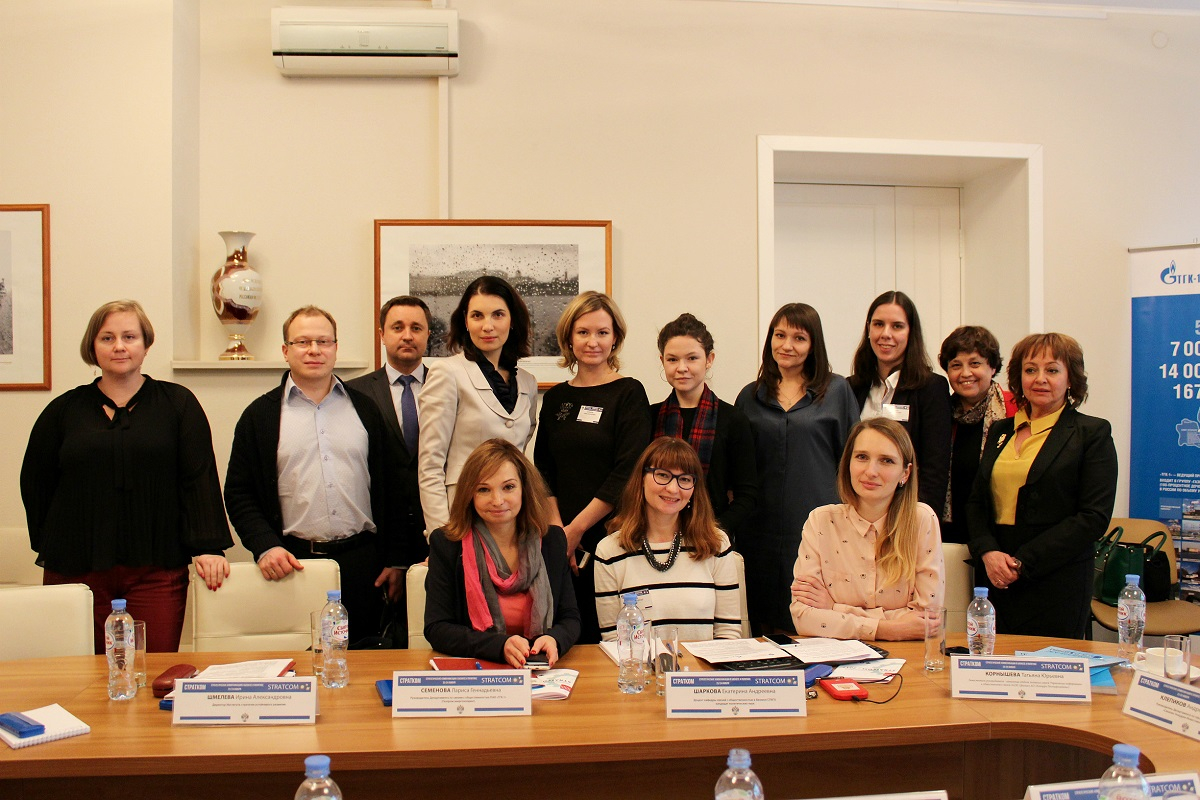How hype, fakes, and judo influence how we communicate in XXI century
St Petersburg University has held the V International Conference “Strategic Communications in Business and Politics», in business and scientific communities more known as Stratcom. It discusses how we will communicate in the nearest future: from technologies to people who be involved.
The Director of the Higher School of Journalism and Mass Communications, SPbU Professor Anatolii Puiu greeted the guests who came to St Petersburg from Russia and abroad and he particularly appreciated contribution the employers made.
We appreciate that you help us be at the forefront of education and prepare specialists who are competitive in the global media market.
Director of the Higher School of Journalism and Mass Communications, SPbU Professor Anatolii Puiu
Practice is our top priority
The speakers of Startcom were the directors of the departments for communications of the leading companies: Leningrad nuclear power station, MegaFon, Siemens, Sakhalin Energy, VTB 24, Gazprom, BCS Financial Group, and others.
PR-director of the North-West branch of MegaFon Karmen Mandzhieva told us through how hype and fakes influenced the company reputation. Today, gaining profit is associated with scandals, and it is called hyponomics. The scandalous events increase the Internet traffic and bring benefit.
The Director of the Department for Retail Marketing of the BCS Financial Group and SPbU graduate in Advertising and Public Relations Andrei Nesterov focused on the narratives: mechanisms to process information by our brain that leads to our subjective interpretations. If you know these principles of how the information can be distorted, you can manipulate people, said the expert.
People like telling stories and by doing so they make conclusions. So, you make your environment more narrow and form new meanings which are likely to be far from true.
Director of the Department for Retail Marketing of the BCS Financial Group and SPbU graduate in Advertising and Public Relations Andrei Nesterov
The Press Secretary of the North-West branch of the VTB 24 and SPbU graduate in Journalism Ivan Makarov told us through how he had been collaborating the mass media. He compared how you can work with journalists with the martial arts like karate and judo in terms of how you can initiate publications. If you are of karate-type, you are more likely to gain a total control over what the press-service of the company is concerned with, while if you are of judo-type, you tend to pass your responsibilities to the media.
Scientific overview of the future of our communications
The Executive Director of the Russian Association for Pubic Relations Iulia Griaznova shred her view on how our communication would change. “Everyone has complex inner experience, how we are different from each other is more than ever increasing, - said the speaker. — Today we have collective subjects who we haven’t dealt with before. They are an enormous challenge for communication”.
Formed in 2013, the international conference Startcom brings together the leading experts in mass communications, professional community, and students. It primarily focuses on collaboration between Russian and foreign scientists in the strategic communications, PR, advertising, communication education in Russia, and fostering research collaboration in academic community.
Within the future decade, there will be two major challenges in communications. First, we will have to communicate with empathy and trying to understand what drives your partner. Second, we will have to develop information exchange to generate new knowledge, rather than impose what we think on people to gain some benefit.
The honoured guest was Professor of the Federal University of Rio-de-Janeiro and writer Muniz Sodré de Araujo Cabral, who delivered a report on what role mass media play in protofascism, a political phenomenon where fascism partially exists.
His Russian colleague SPbU Professor Dmitrii Gavra from the Department of Public Relations in Business continued the topic on the transformations of communications on a global arena. Today, we have an overloaded paradigm of the global strategic communication. Among the reasons that caused it are changes in geopolitical environment and players who have global influence, minority-majority relocation, increasing information exchange, information fast-food, and new nationalism. All these imply that different social communities have the same tools and technologies. “It is a story about children and matches, — said Professor Gavra. — Today we are talking that various social communities have the same matches at their disposal. You will be erring, if you think that someone can use them better”.
Eco-projects as part of sustainable development
The conference also focused on ecology. Gazprom supported a panel discussion “Ecological communication as a tool for strategic cooperation” with the experts from Sakhalin Energy Investment Development, Rosatom, Rosgeologia, Polymetal International, Vodokanal of St Petersburg, Institute of strategy of sustainable development, Association of ecological journalists in St Petersburg, GEO, and others.
It seems logical that the University arranged this round table. It brings together the experts in communications, journalists, and researchers. Yesterday, we had immensely engaging and much debated talks, and it is incredibly pleasing.
Director of the Department for Public Relations of TGK-1 Larisa Semenova
The Director of the Department of External and Coprporative Relations of the Sakhalin Energy Investment Company Ltd. Andrei Klepikov told us through how the first company producing liquefied natural gas in Russia can manage to be at the top of the rankings and build its reputation of a reliable business.
The Director of the Department of Information Management of LAES and SPBU graduate in Advertising and Public Relations Tatiana Kornysheva told about the role of the PR-departments of the nuclear plants in ecological education of the public. She told about information opened of the LAES, sociological research of the public opinion, and challenges we can face in communications in the nuclear electrical power plants
The discussion drew a conclusion that socially responsible business, ecological journalists, and non-commercial organisations should collaborate on a regular basis. The best platform is St Petersburg University.
This year, Startcom had a number of the events that focused on business-PR tools, political communications, political journalism, strategic communications in entertainment and finance, and global changes. The conference also held a meeting of the Association of the Teachers of Public Relations.



